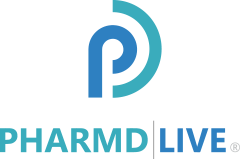Every February, the nation observes American Heart Month, a dedicated time to raise awareness about heart disease, the leading cause of death in the United States. Despite advances in treatment and prevention, cardiovascular disease (CVD) continues to pose a significant health and economic burden—one that requires urgent, proactive intervention.
Heart Month goes beyond raising awareness—it serves as a call to action for patients, healthcare providers and policymakers to adopt proactive, long-term solutions. By prioritizing prevention and early intervention, PharmD Live’s Pharmacist Care Managers (PCMs) are revolutionizing heart care through patient-centered strategies that enhance medication adherence, reduce hospital readmissions, and improve overall heart health.
The Growing Burden of Heart Disease
Heart disease is a widespread and urgent public health crisis with devastating consequences. Cardiovascular disease (CVD) remains the leading cause of death in the United States, responsible for nearly one in three fatalities each year.
Every 34 seconds, someone in the U.S. dies from a cardiovascular-related event. With 47% of U.S. adults living with hypertension, a major risk factor for heart disease, the prevalence of CVD continues to rise, placing millions at risk for severe complications, including heart attacks, strokes and heart failure.
Beyond its human toll, heart disease carries an overwhelming economic burden, costing the U.S. healthcare system over $400 billion annually in medical expenses, medications and lost productivity. Yet, despite its devastating impact, up to 80% of cardiovascular diseases are preventable with early detection, lifestyle modifications and proper medication adherence.
However, many individuals struggle to access timely care due to provider shortages, poor medication adherence and limited access to preventive screenings and continuous monitoring. Without proactive intervention, these barriers only exacerbate the growing heart disease crisis, increasing the likelihood of avoidable hospitalizations and long-term complications.
Challenges in Managing Heart Disease
While heart disease is preventable and manageable, patients and healthcare providers face numerous barriers that complicate treatment, including:
1. Medication Non-Adherence & Poor Management
- Many heart disease patients require multiple medications, including blood pressure medications, cholesterol-lowering drugs and anticoagulants.
- 50% of patients do not take their medications as prescribed, leading to increased hospitalizations and avoidable complications.
2. Lack of Continuous Monitoring & Early Interventions
- Conditions like hypertension and atrial fibrillation often worsen silently.
- Without remote patient monitoring (RPM) and predictive analytics, warning signs are missed, increasing the risk of heart attacks and strokes.
3. Gaps in Care Due to Provider Shortages
- The U.S. faces a shortage of primary care providers and cardiologists, making regular follow-ups challenging.
- Many patients—especially in rural or underserved areas—struggle to access specialists before their condition worsens.
4. The Need for Coordinated, Value-Based Care
- Healthcare providers are overburdened, often lacking the time and resources to ensure consistent, personalized chronic care management.
- Pharmacist-led interventions have been shown to improve patient outcomes, prevent hospital readmissions and reduce healthcare costs—yet they remain underutilized.
What Needs to Be Done to Combat Heart Disease
Addressing the growing burden of cardiovascular disease requires a proactive, patient-centered approach that prioritizes prevention, early intervention and continuous care. Personalized medication management is essential to ensure that patients take the right medications at the right time, reducing the risk of adverse drug events and improving overall adherence.
In addition, remote monitoring and AI-driven predictive analytics can help identify high-risk patients before complications arise, enabling timely interventions that prevent hospitalizations and long-term damage.
Expanding access to preventive care and regular check-ups is also critical in empowering patients to make heart-healthy lifestyle changes, optimize their medications and receive early screenings for cardiovascular risks.
Finally, integrating virtual care solutions can provide much-needed support to overburdened healthcare providers by offering expert-led telehealth services. By combining these strategies, healthcare systems can improve patient outcomes, reduce hospitalizations and ultimately lower the devastating impact of heart disease.
How PharmD Live’s Virtual Pharmacist-Led Care Supports Cardiovascular Patients
PharmD Live’s telehealth-driven care model integrates advanced AI analytics with the clinical expertise of virtual pharmacists. By embedding Pharmacist Care Managers (PCMs) into patient care, PharmD Live offers:
1. Medication Therapy Management (MTM) to Improve Adherence
- PCMs review, adjust and optimize medications for heart disease patients.
- Ensures safe combinations of blood pressure, cholesterol and anticoagulant medications to minimize adverse drug events (ADEs).
- Impact: Medication adherence programs increase compliance rates leading to fewer hospital visits.
2. Remote Patient Monitoring (RPM) for Early Detection
- AI-powered wearable devices track heart rate, blood pressure and oxygen levels.
- Pharmacists analyze real-time health data to detect abnormalities early, allowing for timely interventions.
- Impact: RPM reduces hospitalizations for heart failure patients by up to 50%.
3. Chronic Care Management (CCM) for Long-Term Heart Health
- Ongoing virtual consultations help patients manage hypertension, heart failure and coronary artery disease.
- PCMs provide education on lifestyle changes, including nutrition, exercise and stress management.
- Impact: CCM programs have been shown to reduce hospital admissions.
4. Annual Wellness Visits & Preventive Screenings
- Cardiovascular risk assessments identify at-risk patients before complications arise.
- Preventive screenings help detect hypertension and early signs of heart disease.
- Impact: Regular heart health check-ups reduce cardiovascular events by.
The Future of Heart Disease Management is Virtual & Proactive
Heart disease requires continuous, high-quality care but traditional healthcare models often fail to provide ongoing support.
PharmD Live is transforming cardiovascular disease management by combining pharmacist expertise, AI-powered analytics and telehealth technology. PharmD Live’s real-time, patient-centered solutions enhance medication adherence, prevent complications and empower patients to take control of their heart health.
Contact PharmD Live today to learn how our virtual clinical pharmacist-led solutions can improve cardiovascular outcomes and reduce healthcare costs.
Together, we can make heart health a priority—this month and beyond.








